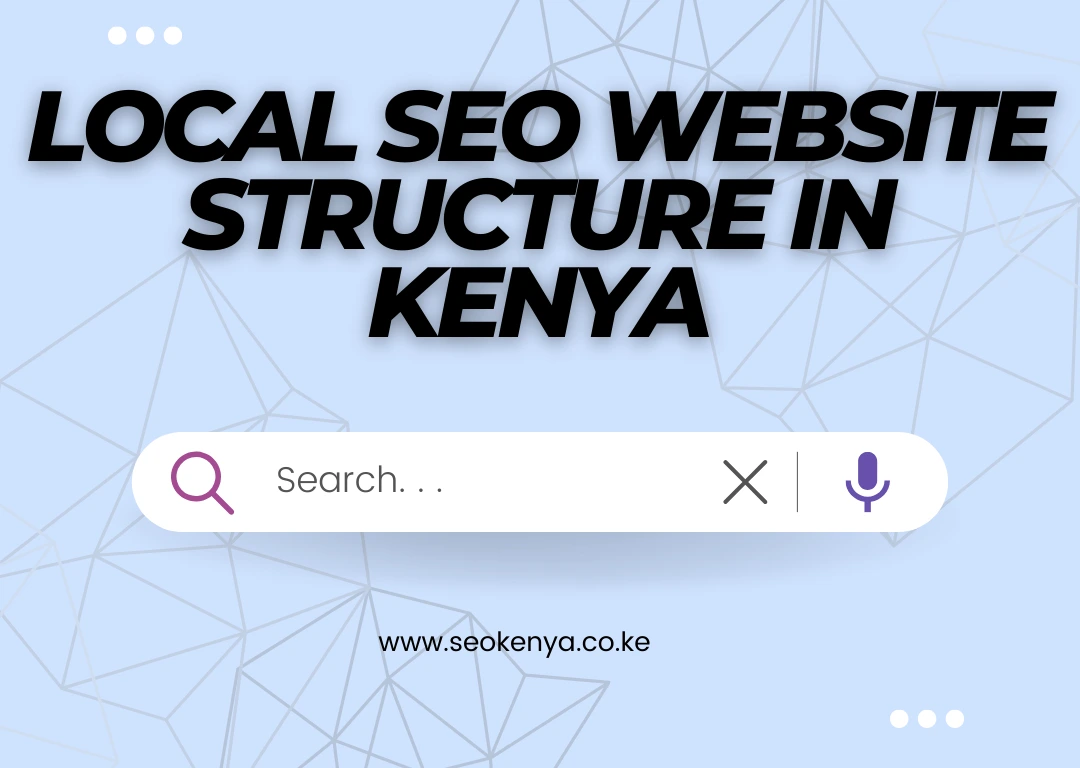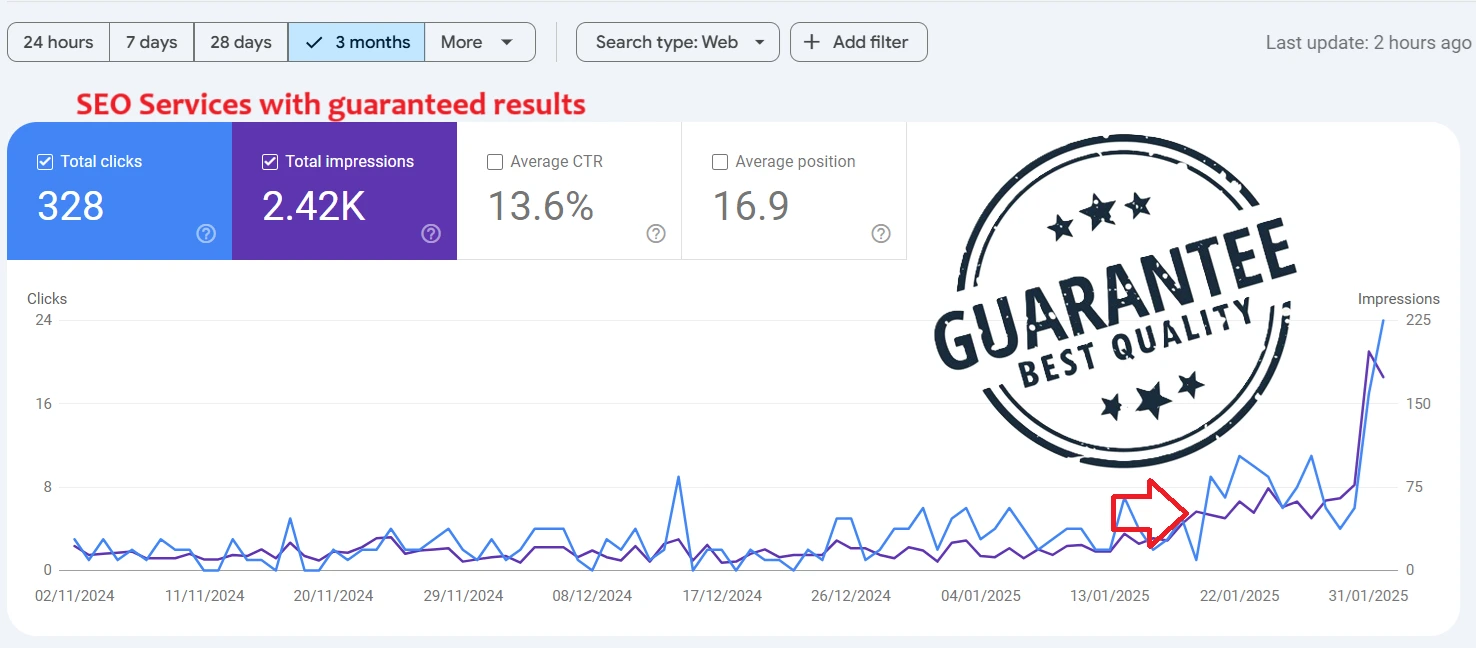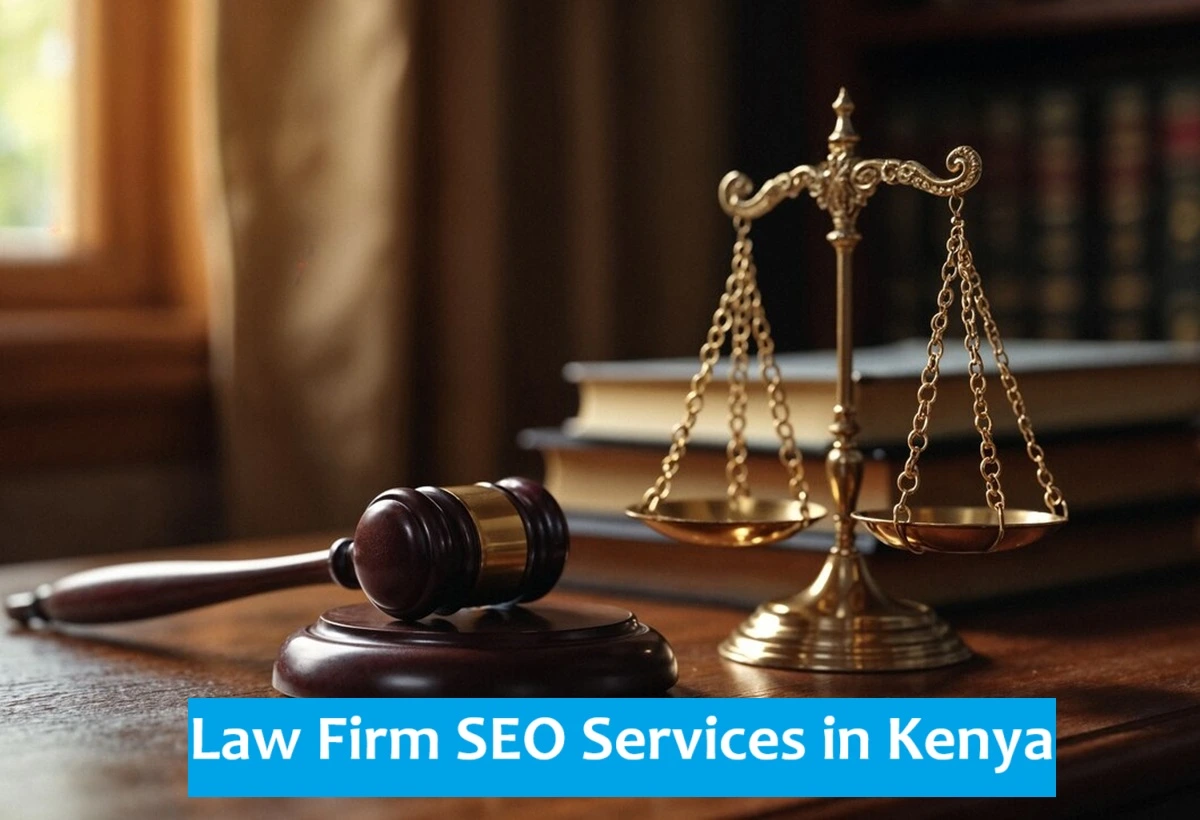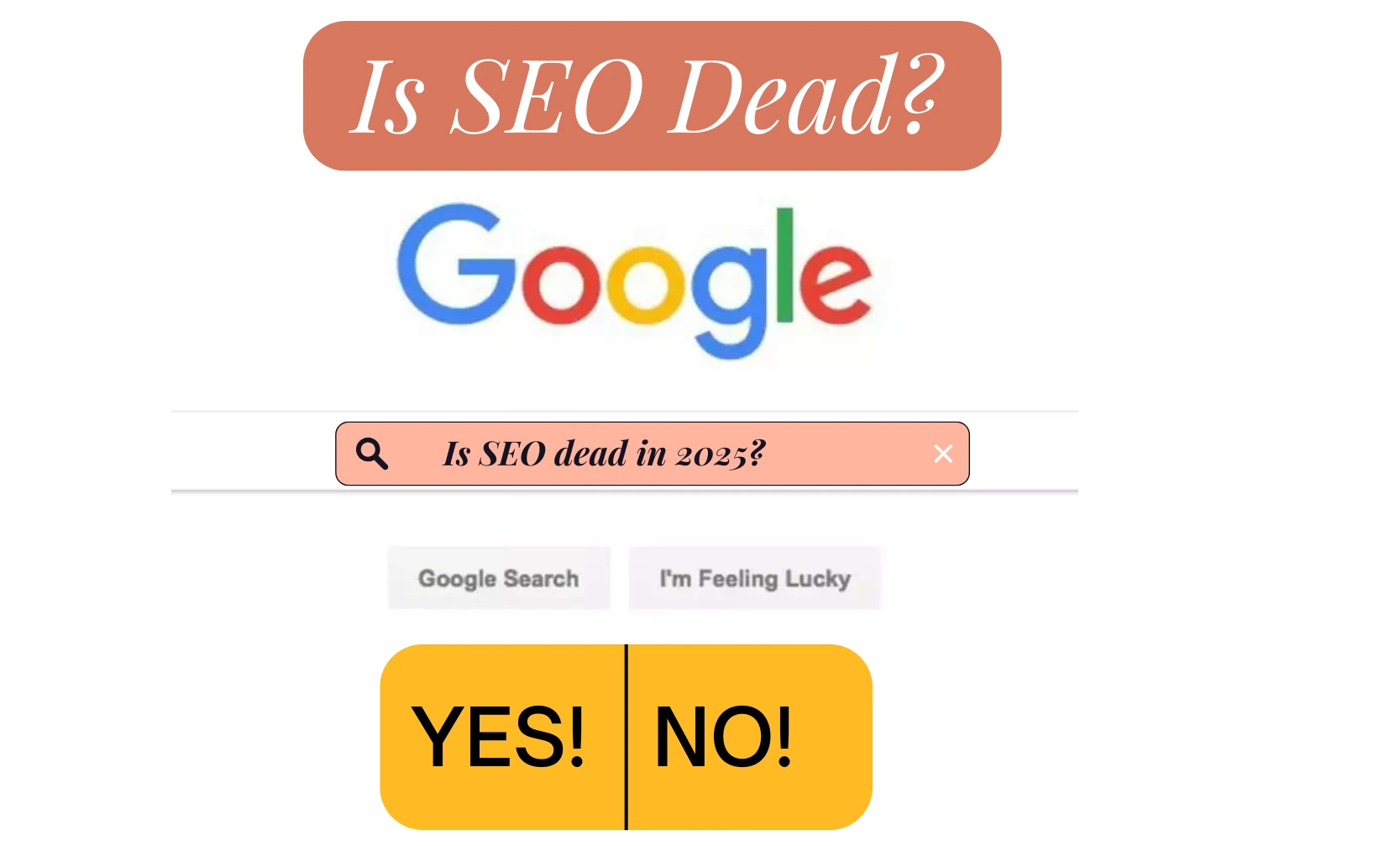
A well-structured website is critical for local SEO success in Kenya. The organization of pages, URLs, and content determines how well search engines and users understand your website.
Here is how to create an effective website structure to rank well with local SEO in Kenya.
Map Your Current Website Structure for Local SEO Success
A well-organized website structure is essential for local SEO. It allows search engines to understand your site’s content and helps users navigate easily. The first step in optimizing your website structure is to map the current setup to identify gaps and areas for improvement.
Analyze Your Website Structure
Use tools like Screaming Frog to crawl your website and visualize its architecture. This process will give you a tree graph that shows the relationships between pages and their hierarchy.
- Export this data into a visual tool like Miro.
- Create a chart with key elements such as:
- Homepage
- Service Pages
- Location Pages
- Supporting Content (like blog posts)
This visual map provides clarity on how well your pages are organized and where there may be opportunities to optimize.
Evaluate Key Page Types
Once you have a clear overview, ask the following questions to ensure your website caters to local SEO needs:
- Service Pages:
- Do you have individual pages for each service you offer?
- Are these pages optimized with location-specific keywords?
- Location Pages:
- For businesses serving multiple areas, is there a dedicated page for each location?
- Are these pages properly linked to relevant service pages?
- Supporting Content:
- Does your blog include content that reinforces your expertise and targets local search queries?
- For example, “How to Choose Reliable Plumbers in Nairobi” can support service pages for plumbing.
- Navigation:
- Is the site easy to navigate with clear menu structures?
- Ensure that users can access important pages in three clicks or fewer.
Structure for Local SEO
To create a structure optimized for local SEO, ensure the following:
- Homepage: Highlight your services, locations, and a brief description of what sets you apart.
- Service Pages: Dedicate one page per service and optimize for specific keywords like "AC Installation in Kisumu."
- Location Pages: Include content tailored to each area you serve, such as "Reliable Electricians in Nakuru."
- Blog Posts: Write articles targeting local concerns, linking them back to relevant service and location pages.
Creating Service and Location-Specific Pages
A critical aspect of local SEO success is creating pages dedicated to the services you offer and the locations you serve.
These pages must be structured logically and optimized for search engines and users.
Service Pages
Service pages should focus on individual services your business provides. For instance:
- Page Title: Use precise and keyword-optimized titles like “Professional Roofing Services in Nairobi.”
- Content: Include a clear description of the service, benefits, pricing, and a call-to-action (CTA) for inquiries.
- Internal Linking: Link these pages to related blog posts or location pages to reinforce relevance.
Each service should have its page, ensuring clear targeting for search engines and helping customers find specific information quickly.
Location Pages
If your business operates in multiple areas, location-specific pages are essential.
- URL Structure: Use subfolders, such as /nairobi/plumbing-services/ or /mombasa/electrical-repairs/.
- Content Customization: While the core service description might remain consistent, include localized elements such as nearby landmarks, customer testimonials from the area, or unique challenges related to the location.
- SEO Optimization: Incorporate location-specific keywords in titles, headers, and meta descriptions. For instance, “Affordable Landscaping in Kisumu” can be a compelling headline.
Ensure each location page links back to relevant service pages and has unique content tailored to the area.
Why This Matters for Local SEO in Kenya
Search engines value specificity and relevance. Dedicated service and location pages signal to search engines that your website caters to both specific needs and geographic areas.
This, in turn, improves your visibility in local search results.
Optimizing URL and Folder Structures
A clean and logical URL structure improves user experience and search engine visibility. For local SEO in Kenya, aligning your URLs with services and locations is key.
Best Practices for URL Structure
- Use subfolders to organize content. Example: /location/service/ or /nairobi/roofing-services/.
- Avoid overly long or complex URLs. Keep them simple and descriptive.
- Incorporate target keywords into URLs for SEO benefits.
Single vs. Multiple Locations
- Single Location: If your business has one location, you can use straightforward URLs like /services/ or /contact-us/.
- Multiple Locations: For businesses serving several areas, use subfolders for each location. For example:
- /mombasa/
- /nairobi/
Why Proper URL Structure Is Important
A clean structure not only helps search engines understand your website’s hierarchy but also improves user experience.
Visitors can navigate intuitively, increasing engagement and reducing bounce rates.
Building Supporting Content for Local SEO
Supporting content reinforces your main pages and enhances your local SEO strategy. Blogs, guides, and FAQs are excellent ways to provide value to your audience and strengthen your authority.
Blog Content
- Create content targeting local issues and concerns. For example:
- “10 Tips for Preventing Roof Leaks During the Rainy Season in Kisumu.”
- “How to Hire Reliable Contractors in Nairobi.”
- Use internal links to connect blog posts to relevant service or location pages.
FAQs
Answer common customer questions while incorporating local keywords. For example:
- “What plumbing services do you offer in Nakuru?”
- “How quickly can you respond to electrical emergencies in Mombasa?”
Local Guides
Develop guides that are helpful for residents and tie into your services. Examples:
- “The Complete Guide to Home Renovation in Nairobi.”
- “Best Practices for Water Tank Maintenance in Eldoret.”
Importance of Supporting Content
Supporting content builds trust, showcases expertise, and provides search engines with more signals about your relevance to specific locations and services.
Integrating Schema Markup for Local SEO in Kenya
Schema markup is a powerful tool for improving how search engines interpret and display your website content.
For local SEO in Kenya, adding schema can enhance your visibility in search results by providing rich snippets.
Types of Schema Markup to Use
- Local Business Schema:
- Includes details like your business name, address, phone number (NAP), opening hours, and services.
- Example: Use it on your homepage or location pages to highlight your presence in a specific area.
- Service Schema:
- Add schema to service pages to detail the services you provide.
- Example: “Roof Repair Service” with pricing, availability, and ratings.
- Review Schema:
- Showcase customer reviews and ratings.
- Example: Display “4.9-star rating from 120 reviews” directly in search results.
- FAQ Schema:
- Use this for your FAQ section to provide direct answers to user queries in search results.
Schema markup increases your chances of appearing in rich results, such as featured snippets, which attract more clicks and improve your website’s authority.
Enhancing Internal Linking
Internal linking is essential for guiding users and search engines through your website.
A well-structured linking strategy ensures that every page contributes to your site’s overall SEO strength.
Best Practices for Internal Linking
- Link Hierarchically: Connect pages based on your website structure. For example:
- Service pages link to related location pages.
- Blog posts link to relevant service or location pages.
- Use Descriptive Anchor Text: Instead of “Click here,” use text like “Plumbing services in Nairobi.”
- Avoid Overlinking: Focus on relevant and natural connections between pages.
Proper internal linking distributes link equity throughout your website and improves the discoverability of deeper pages, such as specific services or blog posts.
This boosts overall website SEO.
Local Link Building Strategies
Local backlinks are vital for reinforcing your website’s authority in your target area. Building connections with local directories, blogs, and businesses can enhance your local SEO efforts.
Sources for Local Backlinks in Kenya
- Local Directories:
- Submit your business to directories like Yellow Pages Kenya, Kenya Business Listing, and Kenya Business Directory.
- Ensure your NAP is consistent across all listings.
- Community Engagement:
- Collaborate with local blogs or media outlets to feature your services.
- Example: A feature on “Top 5 Renovation Experts in Nairobi.”
- Event Sponsorships:
- Sponsor local events or charities and request a backlink in return.
- Example: Supporting a “Clean-Up Drive in Mombasa” with a link to your website.
- Collaborative Content:
- Partner with complementary local businesses for joint content or promotions.
- Example: A blog titled “How Plumbers and Electricians Work Together for Home Repairs in Eldoret.”
Local backlinks signal to search engines that your business is trusted and relevant in the area, improving your local rankings.
Optimizing for Mobile Responsiveness
By now you know that a significant portion of internet users in Kenya access websites through mobile devices.
Therefore, ensuring your local business website is mobile-friendly is critical for both user experience and SEO rankings.
Key Mobile Optimization Practices
- Responsive Design:
- Ensure your website adjusts seamlessly to various screen sizes, including smartphones and tablets.
- Fast Loading Speeds:
- Compress images, enable caching, and minimize code to improve page load times.
- Google recommends a loading time of under 3 seconds for mobile pages.
- Simplified Navigation:
- Use easy-to-click buttons and a clear menu to help users access information quickly.
- Mobile-Specific Features:
- Include “click-to-call” buttons for immediate contact.
- Add maps to help users find your physical location.
Google prioritizes mobile-first indexing, which means mobile performance directly impacts your rankings.
A mobile-friendly site ensures better engagement, reducing bounce rates and encouraging conversions.
Regular Website Audits and Updates
To maintain peak SEO performance, regular audits and updates are essential.
Over time, search engine algorithms and user behaviors change, and your site needs to keep up.
Checklist for Regular Audits
- Technical SEO Audit:
- Check for broken links, crawl errors, and page speed issues using tools like Screaming Frog or Google Search Console.
- Content Relevance:
- Update old content to reflect current trends or add new insights.
- Schema Validation:
- Use tools like Google’s Rich Results Test to ensure schema markup is working correctly.
- Backlink Health:
- Analyze backlinks for quality and disavow any toxic links that might harm your site.
- Local SEO Factors:
- Verify that your business information (NAP) is accurate across all platforms.
Consistent audits help fix potential issues before they impact rankings and ensure your site stays aligned with search engine guidelines.
Ready to dominate local SEO in Kenya?
Our experts are here to help you create a powerful website structure and optimize your online presence for local success.
📅 Book a free consultation today!
>>>>>>> Click here to schedule: Book Now <<<<<<<<<
Take the first step toward growing your business with a winning local SEO strategy.




